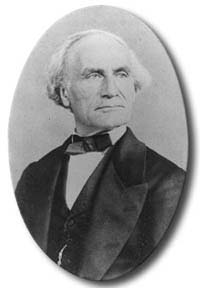| Jean Eugène Robert-Houdin | |
|---|---|
 |
|
| Magician | |
| Born | Dec. 6, 1805 Blois, France |
| Died | June 13, 1871 (at age 65) Saint-Gervais-la-Forêt, France |
| Nationality | French |
Jean Eugène Robert-Houdin (1805-1871) was a French magician. He is generally considered to have been the originator of conjuring in its modern sense. He was the first major magician to make extensive use of electricity, an idea which stemmed from his background as a clock-maker.
Nevertheless, he came under intense official scrutiny and even suspicion on the belief that he might have been performing witchcraft. To prove otherwise, he had to reveal many of his secrets to the French government. Harry Houdini adopted his stage name in honor of Robert-Houdin, although he was sometimes highly critical of his predecessor.
Early Years
Robert-Houdin was born in the French town of Blois on December 6, 1805. His father was a clockmaker, and the young Jean was expected to follow in his footsteps and join the family business. Instead, after being educated at the University of Orleans, he became fascinated by the world of magic.
He started out doing tricks purely as a hobby. When he was 24, he married into another clock-making family. With his wife, he opened a studio in Paris, assisted by his father-in-law. Once settled in the city, he was able to devote more time to magic, becoming a frequent attendee at performances and befriending many of Paris’s prominent magicians.
The Start of a Career
Robert-Houdin was heavily influenced by Comte, who had been patronized by French royalty, and Philippe, one of the pioneers of the use of electricity on stage. He continued to make his living from clock-making, but the idea gradually formed in his mind that one day he might tread the boards in his own right.
In 1844, he bought a small automaton in the form of a mechanical man, and this sold for several thousand francs to Phineas T. Barnum, the American circus master. This income allowed him to complete a number of pieces for a theater of his own, specializing in magic, which was opened on the site of the famous Palais Royal.
Later Work in Magic
 Robert-Houdin’s acts were very well-received by the public, thanks to his flair for showmanship. At the time, most stage magicians still wore flowing robes; Robert-Houdin was the first to adopt the modern uniform of evening dress on stage.
Robert-Houdin’s acts were very well-received by the public, thanks to his flair for showmanship. At the time, most stage magicians still wore flowing robes; Robert-Houdin was the first to adopt the modern uniform of evening dress on stage.
Despite his use of electricity, however, it was a more traditional trick which brought him wider fame. In this trick, his son would be blindfolded with his father in the audience holding up a series of items. His son would then call out what they were.
Later, it was discovered that the two communicated via a complex series of code words and set phrases. Although the act was not designed from scratch by Robert-Houdin, he was the man who brought it to a fine art thanks to his presentation skills.
Death and Legacy
In 1856, Emperor Louis Napoleon called on Robert-Houdin and asked him to use his skills to calm a tribal rebellion in Algeria. The idea was that he should combat the tribal leaders’ use of traditional magic by demonstrating that French magic was more powerful.
He accomplished this by means of a stage show incorporating electricity: a tribesman who received a shock from a rigged box was astonished. Soon after this, Robert-Houdin ceased making public performances, devoting his retirement to writing several books on magic, as well as his autobiography. By the time he died in rural central France on June 13, 1871, Robert-Houdin’s lasting reputation was secure.